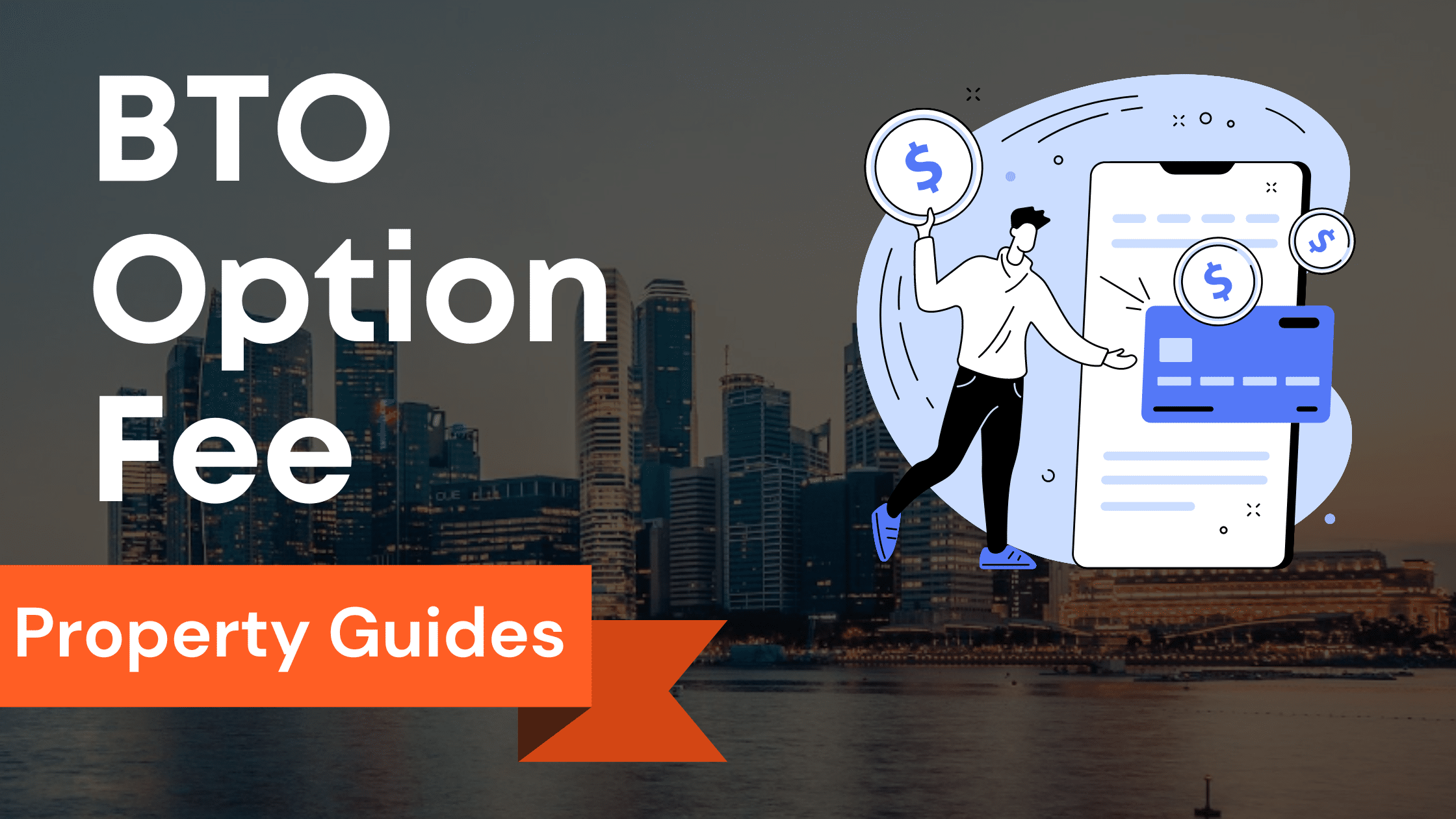
Discover the art of tax mitigation and the significance of owner-occupier rates.
Delve into the connection between property and income tax, and witness the pursuit of equitable taxation through progressive property tax.
Embrace the adventure and uncover a world of financial understanding and wise homeownership.
Key Takeaways
- Property tax is imposed on property owners by the government and is based on the annual value of the property.
- The tax rate is determined by the government and varies depending on the property type and usage.
- Property tax is payable annually, and property owners must pay within the specified deadline to avoid penalties and interest charges.
- The Inland Revenue Authority of Singapore (IRAS) plays a crucial role in property tax collection and administration.
- The annual value of a property is its estimated annual rental value if it were to be rented out.
- Progressive property tax is applied, meaning tax rates increase as the annual value of the property rises.
- Homeowners can explore strategies to reduce property tax burdens, such as property renovations and appealing assessed values.
- Property tax is different from income tax, and homeowners may need to pay both depending on their circumstances.
- Acquiring a new property can affect property tax, as the tax is based on the property’s annual value.
- Timely payment of property tax is crucial to avoid penalties and legal consequences.
Understanding Property Tax: An Overview of the Tax System
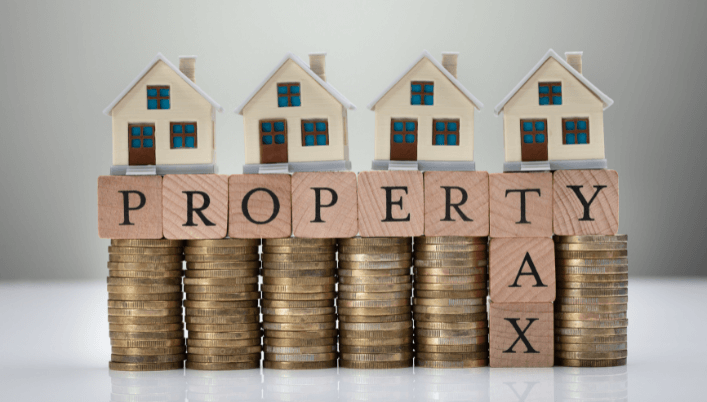
What is property tax?
Property tax is a tax imposed on property owners by the government.
The tax rate is determined based on the annual value of the property, among other factors.
It is a significant revenue source for the government to fund public services and infrastructure development.
How is the property tax rate determined?
The property tax rate is determined based on several factors, including the annual value of the property and the prevailing tax rates set by the government.
The tax rates can vary depending on the property type and its usage.
Residential properties, including owner-occupied properties, have their tax rates.
When is property tax payable?
Property tax is generally payable annually.
The tax year in Singapore follows the calendar year, with property tax assessments typically sent out in the first quarter of the year.
Property owners must pay their property tax within the specified deadline to avoid penalties and interest charges.
How Property Tax Rates Are Calculated
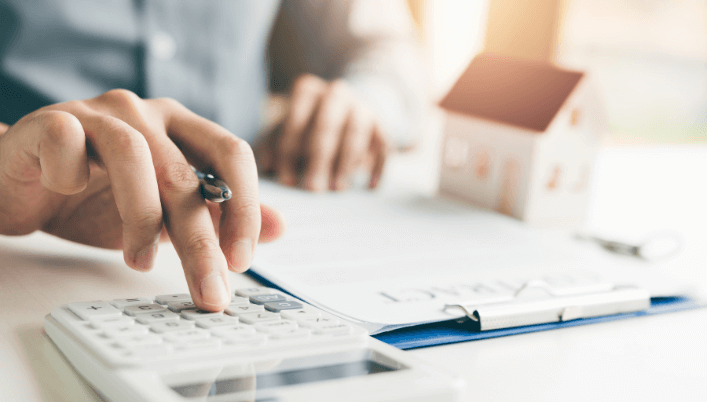
What factors influence property tax rates?
Several factors can influence property tax rates.
These include the annual value of the property, the property type, its usage, and any applicable tax reliefs or exemptions.
It’s important to note that property tax rates are subject to periodic reviews by the government and may be adjusted accordingly to reflect current market conditions and policy changes.
How is property tax calculated for residential properties?
For residential properties, including owner-occupied properties, the property tax calculation is based on the annual value of the property.
The Inland Revenue Authority of Singapore (IRAS) determines the yearly discount.
It represents the estimated annual rental income the property could generate if it were to be rented out.
What is the role of the Inland Revenue Authority of Singapore (IRAS) in property tax collection?
The Inland Revenue Authority of Singapore (IRAS) plays a crucial role in collecting and administrating property tax in Singapore.
It is responsible for assessing the annual value of properties, issuing property tax bills, and ensuring compliance with property tax regulations.
Property owners must promptly report any property ownership or usage changes to IRAS.
Exploring the Annual Value (AV) of Residential Properties

What is the annual value of a property?
A property’s annual value (AV) refers to its estimated yearly rental value if it were to be rented out.
It is determined by considering similar properties’ location, size, condition, and market rental rates.
How is the annual value determined?
The Inland Revenue Authority of Singapore (IRAS) assesses properties’ annual value (AV) based on the information available and market conditions.
IRAS utilizes a set of valuation guidelines and industry knowledge to determine the AV of each property.
The AV is periodically reviewed to ensure its accuracy and alignment with prevailing market conditions.
How does the annual value affect property tax payable?
The annual value (AV) directly impacts the property tax payable.
Property owners are required to pay a percentage of the AV as property tax.
Higher AV results in a higher tax liability, while lower AV leads to a lower tax obligation.
Property owners need to accurately understand their property’s AV to plan their finances effectively.
The Role of IRAS in Property Tax Collection
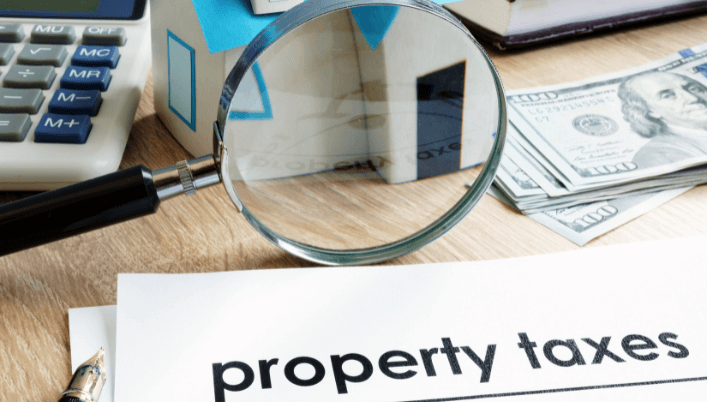
What are the responsibilities of the Inland Revenue Authority of Singapore (IRAS) in property tax collection?
IRAS is responsible for several critical tasks related to property tax collection.
These include assessing the annual value of properties, issuing property tax bills, providing guidance to property owners, and enforcing property tax regulations.
IRAS also handles any inquiries, disputes, or requests for tax refunds related to property tax.
How does IRAS assess and collect property tax?
IRAS assesses and collects property tax through a well-defined process.
It sets the annual value of properties based on available information and sends property tax bills to property owners.
Property owners are required to pay their property tax within the specified deadline.
Failure to comply may result in penalties, interest charges, or legal actions by IRAS.
What are the penalties for non-payment or late payment of property tax?
Non-payment or late property tax payments can result in penalties and interest charges.
Property owners who fail to pay their property tax within the specified deadline may incur penalties ranging from a percentage of the outstanding tax amount to a fixed monetary penalty.
Property owners must meet their tax obligations promptly to avoid unnecessary financial burdens.
Owner-Occupier Tax Rates: Key Considerations
What is an owner-occupier tax rate?
An owner-occupier tax rate is specifically applicable to properties occupied by their owners.
These tax rates are generally lower than non-owner-occupied tax rates to provide relief to homeowners and encourage property ownership.
How are owner-occupier tax rates different from other property tax rates?
Owner-occupier tax rates differ from other property tax rates primarily regarding the tax rate level.
The government sets lower tax rates for owner-occupied properties to ease the tax burden for homeowners.
Non-owner-occupied properties, such as investment properties, typically have higher tax rates.
Are there any eligibility criteria for owner-occupier tax rates?
Eligibility for owner-occupier tax rates depends on factors such as property ownership and usage.
Generally, properties solely occupied by their owners qualify for owner-occupier tax rates.
However, specific criteria or conditions may apply, and property owners must verify their eligibility with the Inland Revenue Authority of Singapore (IRAS).
Owner-Occupied Properties vs. Non-Owner-Occupied Properties
Understanding the difference between owner-occupied and non-owner-occupied properties
Before delving into the intricacies of property tax, it is crucial to differentiate between owner-occupied and non-owner-occupied properties.
Owner-occupied properties refer to residential properties where the owner resides.
On the other hand, non-owner-occupied properties are residential properties that are rented out or left vacant.
The distinction is vital because property tax is calculated differently for these two categories.
How is property tax calculated for owner-occupied residential properties?
For owner-occupied residential properties in Singapore, property tax is calculated based on the annual value of the property.
The government determines the annual value and reflects the estimated yearly rental value of the property if it were to be rented out.
The property tax is then calculated as a percentage of the annual value.
What are the property tax rates for residential properties in Singapore?
The property tax rates for residential properties in Singapore depend on the annual value of the property.
The rates range from 4% to 10% for owner-occupied residential properties.
It is essential to note that property tax rates may be subject to change annually.
Homeowners should stay updated with the latest rates to ensure compliance with their tax obligations.
The Importance of Paying Your Property Tax on Time
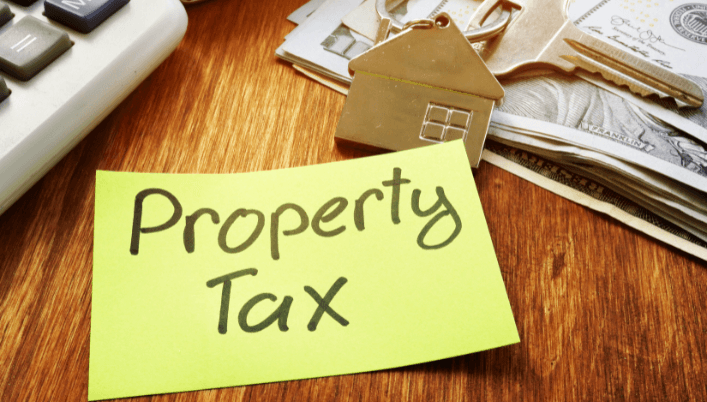
Consequences of late payment or failure to pay property tax
Timely payment of property tax is crucial to avoid penalties and legal complications.
Late payment or failure to pay property tax can result in fines, interest charges, and even legal action.
To maintain good standing with the relevant authorities and adhere to financial responsibilities, homeowners must prioritize paying their property tax on time.
How to pay your property tax and the available payment options
There are various payment options available for homeowners to pay their property tax.
One can opt for electronic payment methods such as Internet banking, standing instructions, or GIRO.
These options provide convenience and ensure prompt payment.
Homeowners can also make payments in person at authorized collection centers or through electronic payment services provided by banks.
Using credit card payment for property tax
Another payment option that homeowners may consider is credit card payment.
Singapore’s tax authority allows property tax payment via credit cards.
This option provides flexibility and convenience for homeowners who prefer to manage their finances through credit card transactions.
However, homeowners should be aware of associated credit card fees and interest charges when using this payment method.
Property Tax Rebate: Qualifications and Benefits

Who is eligible for a property tax rebate?
Property tax rebates are available to eligible homeowners to ease their tax burden.
The government provides property tax rebates as a form of support and relief.
Eligibility for property tax rebates is typically based on factors such as income level, property ownership, and other criteria established by the relevant authorities.
Benefits and advantages of property tax rebate
Property tax rebates offer homeowners financial relief by reducing their property tax liability.
These rebates can lessen the financial strain and provide additional funds for other essential expenses.
Homeowners should use such programs to optimize their financial planning and ensure a sustainable homeownership experience.
How to apply for a property tax rebate
Homeowners can apply for property tax rebates through the designated channels established by the government.
Typically, application forms are available online or through relevant government agencies responsible for property tax administration.
It is crucial to adhere to the application timelines and provide accurate information to enhance the chances of a successful rebate application.
Progressive Property Tax: A Closer Look

Understanding the concept of progressive property tax
Progressive property tax is a taxation system where the tax rate increases as the annual value of the property rises.
This tax system aims to achieve more significant equity and redistribute the tax burden more effectively.
Progressive property tax ensures homeowners with higher-value properties contribute proportionally more to the tax pool.
How is progressive property tax calculated?
The calculation of progressive property tax is based on the annual value of the property—the tax rate increases in tiers, with higher rates applied to properties with higher yearly values.
The tax authorities determine and announce the specific tax rates for each level annually.
Homeowners can consult the updated tax rate tables or seek professional advice to accurately calculate their progressive property tax.
The impact of progressive property tax on homeowners
Progressive property tax directly impacts homeowners, particularly those with higher-value properties.
With higher tax rates applied to higher-value properties, homeowners may experience increased property tax liabilities.
Homeowners must budget and plan accordingly to accommodate potential tax increases and ensure financial stability.
Mitigating Property Tax Increases: Strategies for Homeowners
Strategies to reduce the property tax burden
Homeowners can explore various strategies to reduce their property tax burden.
One critical method is to undertake property renovations or refurbishments that may lower the assessed annual value of the property.
Additionally, homeowners can consider appealing the estimated yearly value if they believe it needs to reflect the true rental potential of the property.
Seeking professional advice and guidance can help homeowners identify and implement effective tax reduction strategies.
Considering the cost of property ownership tax
When purchasing a property, homeowners need to consider the purchase price and the associated costs, including property ownership tax.
Property ownership tax includes expenses such as property tax, maintenance fees, and other related charges.
Factoring in these costs allows homeowners to make informed decisions and ensure their financial readiness for homeownership.
Exploring concessionary property tax rates and exemptions
Singapore provides certain concessionary property tax rates and exemptions for specific categories of properties or homeowners.
For example, HDB flats or other residential properties with annual values within a particular range may be eligible for lower tax rates.
Additionally, specific charitable and non-profit organizations may qualify for tax exemptions.
Homeowners should explore these benefits and evaluate their eligibility to optimize their property tax obligations.
Rental Income and Its Impact on Property Tax
How does rental income affect property tax?
When a property is rented out, its rental income would usually be subject to income tax.
However, this rental income does not directly impact the calculation of property tax.
Property tax is instead determined based on the annual value of the property, which is the estimated gross rent that the parcel can fetch if it were to be rented out.
Therefore, the rental income itself does not affect the property tax payable.
Are there any exemptions for rental income when calculating property tax?
No, there are no exemptions for rental income when calculating property tax.
The property tax payable is determined solely based on the annual value of the property, regardless of whether the property is rented out or owner-occupied.
What are the tax implications for renting out a property?
As mentioned, rental income generated from a property is subject to income tax.
Property owners who rent out their properties must declare and include the rental income in their income tax return.
The rental income will be taxed based on the applicable income tax rates.
It is important to note that the income tax on property rental is separate from the property tax on the annual value of the property.
Understanding Wealth Tax and Its Relation to Property Tax
Is property tax related to wealth tax?
While both property tax and wealth tax are types of taxes related to assets, they are distinct from each other.
Property tax is levied explicitly on the annual value of properties, regardless of the owner’s overall wealth.
On the other hand, a wealth tax is a tax imposed on a person’s total wealth, including various types of assets such as properties, investments, and financial support.
How does property value affect wealth tax?
Property value does play a role in wealth tax as it is one of the factors considered when calculating an individual’s total wealth.
However, it is important to note that wealth tax considers a person’s overall wealth, not just the value of their properties.
Therefore, while property value is considered, it is not the sole determinant of wealth tax.
What are the differences between property tax and wealth tax?
The main difference between property and wealth tax lies in their scope and calculation method.
Property tax is limited to the annual value of properties and is calculated based on a progressive tax rate structure.
On the other hand, wealth tax encompasses all of an individual’s assets and is calculated based on the total value of their wealth, including properties, investments, and financial support.
Additionally, property tax is an annual tax, while wealth tax may be imposed periodically or under certain circumstances.
Differentiating Property Tax from Income Tax
What is the difference between property tax and income tax?
Property and income taxes are two distinct types of taxes that serve different purposes.
Property tax is levied on the annual value of properties owned by individuals, while income tax is imposed on the income earned by individuals.
Property tax is a tax on assets, while income tax is a tax on the individual’s earnings.
Do I need to pay both property tax and income tax on my property?
Yes, as a property owner, you may be required to pay both property and income tax, depending on your circumstances.
Property tax is an annual tax payable regardless of whether you generate rental income from your property.
On the other hand, income tax is only applicable if you earn rental income from your property or meet the income tax threshold for other sources of income.
How is property tax calculated compared to income tax?
Property tax is calculated based on the annual value of the property, which is determined by the property tax authority.
The annual value is the estimated gross rent that the property could fetch if it were to be rented out.
The property tax payable is then calculated using a progressive tax rate structure.
On the other hand, income tax is calculated based on the individual’s taxable income, which includes all sources of income such as employment income, rental income, and investment income.
The income tax payable is then determined based on the applicable tax rates and deductions the tax authorities allow.
Impact of New Property Acquisition on Property Tax
Does acquiring a new property affect property tax?
Yes, acquiring a new property can affect the property tax payable.
When a property is newly developed, the property tax authorities will assess its annual value based on the estimated gross rent that the property could fetch.
Therefore, the property tax payable may increase if the new property has a higher value or estimated gross rent than the previous property.
How is property tax affected when buying a higher-value property?
When buying a higher-value property, the property tax payable may increase as the annual value of the property would likely be higher.
The property tax authorities assess the yearly value based on location, size, and property condition.
Therefore, a higher-value property would generally incur a higher property tax liability.
Are there any exemptions or deductions for new property acquisitions?
There are no specific exemptions or deductions granted solely for new property acquisitions.
However, property owners may still be eligible for certain exemptions or beliefs based on their circumstances and the property’s usage.
For example, homeowners may qualify for financial difficulties property tax waiver if they face financial problems and cannot pay their property tax.
How to Compute and Pay Your Property Tax
What is the formula for calculating property tax in Singapore?
The formula for calculating property tax in Singapore is as follows:
Property Tax = Annual Value x Progressive Tax Rate
The property tax authorities determine the annual value, while the progressive tax rate depends on the property’s type and usage.
Residential properties generally have lower tax rates than non-residential properties such as industrial or commercial properties.
When do I need to pay my property tax?
Property tax in Singapore is payable annually.
The Inland Revenue Authority of Singapore (IRAS) issues property tax bills yearly, and property owners must pay by the due date stated on the invoice.
Failure to pay the property tax may result in penalties and legal consequences.
What happens if I fail to pay my property tax?
If you fail to pay your property tax by the due date, IRAS may impose penalties and take legal action to recover the outstanding tax amount.
This can include the imposition of late payment penalties, the issuance of legal demand letters, and even the forced sale of the property through a tax auction.
Property owners must ensure timely property tax payments to avoid incurring additional costs and potential legal issues.
Conclusion
Whether you’re a seasoned homeowner or a first-time buyer, understanding property tax is crucial for making informed decisions and optimizing your tax obligations.
We’ve got you covered, from calculating property tax rates to exploring exemptions and deductions.
Discover the impact of rental income on property tax and learn how to mitigate tax increases with effective strategies.
Explore the concept of progressive property tax and its implications for homeowners.
Plus, find out how property tax differs from income and wealth tax to avoid confusion and plan your finances wisely.
Don’t let property tax become a burden.
Stay ahead with our expert advice and take advantage of available property tax rebates.
We’ll guide you through the process of property tax computation and payment options, ensuring you meet your obligations on time.
With our wealth of knowledge and insights, you’ll gain confidence in navigating the intricacies of property tax and become a savvy homeowner.
Empower yourself with the tools and expertise to excel in property tax.
Get ready to take charge of your financial future and unlock the true potential of your property ownership.
Start your journey now!
Frequently Asked Questions
Q: What is owner occupied property tax?
The tax levied by the government on the property’s value is payable annually.
Q: How are the residential tax rates determined?
The rates are generally progressive, meaning higher-value properties are taxed faster.
Q: Are non-owner-occupier residential properties subject to property tax?
These properties are typically rented out or used for investment purposes.
The property tax rates for these properties differ from those for owner-occupied properties.
Q: How is the annual property tax calculated?
The AV is an estimate of the property’s annual rental value.
The tax is calculated by multiplying the property tax rate by the AV of the property.
Q: Is property tax different from income tax?
While income tax is based on the individual or entity’s income, property tax is based on the ownership of the property.
Property tax is paid regardless of whether the property generates income or not.
Q: Do I need to pay property tax if I own property?
The amount of tax payable is derived from the AV of the property and the applicable property tax rates.
Q: When do I need to pay my property tax?
The deadline for payment is usually by 31st January of the following year.
Q: Are there any exemptions from property tax?
For example, owner-occupied residential properties with an AV below a certain threshold may be eligible for an exemption.
Specific properties used for religious or charitable purposes may also be exempt from property tax.
Q: How does property tax for homeowners differ from that for non-owner-occupied properties?
This is because owner-occupied properties are granted certain tax reliefs and benefits.
Non-owner-occupied properties, on the other hand, are subject to higher tax rates.
Q: Will there be an increase in property tax rates in 2023?
However, staying updated with the latest tax policies and rates is always advisable.












